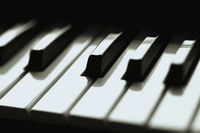Piano Sheets > John Newton Sheet Music > Amazing Grace (ver. 1) Piano Sheet
Amazing Grace (ver. 1) by John Newton - Piano Sheets and Free Sheet Music

About the Song
Other avaliable versions of this music sheet: Version 1 Version 2
"Amazing Grace" is a well-known Christian hymn by Englishman John Newton and first appeared in print in Newton's Olney Hymns (1779).
John Newton, the author of the lyrics to Amazing Grace, was born in 1725 in Wapping, London, England. Despite the powerful message of "Amazing Grace," Newton's religious beliefs initially lacked conviction; his youth was marked by religious confusion and a lack of moral self-control and discipline.
After a brief time in the Royal Navy, Newton began his career in slave trading. The turning point in Newton's spiritual life was a violent storm that occurred one night while at sea. Moments after he left the deck, the crewman who had taken his place was swept overboard. Although he manned the vessel for the remainder of the tempest, he later commented that, throughout the tumult, he realized his helplessness and concluded that only the grace of God could save him..
Download this sheet!
About the Artist

Random article
All you need to know about free sheet music The Internet has made it possible for piano enthusiasts to learn how to play piano by using free sheet music available online. There are plenty of websites online, which offer you music notes for playing the piano.
Types of formats
There are various formats available when it comes to online music sheets for the piano. These include GIF, Postscript, finale, graphics interchange, adobe acrobat etc. If you want quick and easy access to sheet music piano then these free websites are the best choice available. Most websites will also have listings based on the genre of music to help you easily select the appropriate category of piano notes.
(More...)
